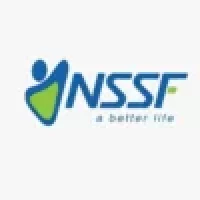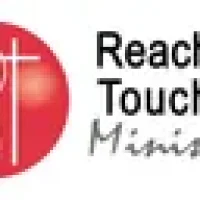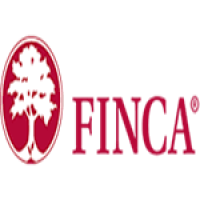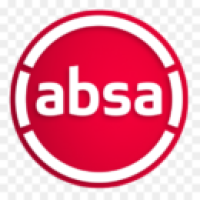MAJOR RESPONSIBILITIES
% of time
Activity
End Results
30%
Mapping of key stakeholders, coordination of the Market and Value Chain Analysis.
- Provide technical leadership in market and value chain analysis for all selected products and identify opportunities and constraints along the value chains for possible interventions
- Provide technical leadership to the THRIVE 2030 project on value chain and market systems development
- Map and connect smallholder producers to key market players to increase both household incomes through increased productivity and profitability.
- Develop or contribute to relevant training materials, manuals related to the management of agricultural and non-agricultural enterprises including collection centers and value chain improvement.
- Identify and support the development of niche commercialization opportunities such as high-value crops and off farm opportunities
- Improved technical leadership and support
- Annual project plans were developed in a timely manner and in accordance with WVUS and donor guidance
- Accurate and timely reports submitted.
- Sustainable livelihoods initiatives and mechanisms developed and implemented
- Households transformed through the implementation of Building Secure Livelihood Model
- Producers profitable and sustainable enterprises developed
- Risks identified and addressed
30%
Monitoring, evaluation, reporting, learning and knowledge management
- Work with DM&E to ensure effective monitoring and oversight of interventions related to market systems and value chain development.
- Coordinate joint planning, monitoring and reflection meetings between staff, producers and other actors in the value chain/market system/stakeholders.
- Develop data collection tools and techniques to monitor project interventions, including the volume and value of marketing products in collection centres and cooperatives.
- Conduct follow-up visits to project activities to assess progress against objectives and provide technical support to activities in areas where improvements are needed.
- Ensure documentation of lessons learned, best practices, successes, case studies, and project impacts for sharing in internal and external knowledge-sharing forums
- Assist the THRIVE 2030 Manager and DM&E Specialist in preparing and submitting timely, accurate, and high-quality reports that meet donor requirements.
- Use innovative approaches to monitor and evaluate the performance, effectiveness and impact of livelihood interventions
- Support research and project evaluation activities, such as baseline and endline.
- Conduct research on sustainable livelihoods and economic development.
- Lead the periodic review of the THRIVE 2030 project to regularly update key stakeholders.
- Document case studies and best practices of market-based approaches in programs that clearly demonstrate the results of social transformation and sustainable development interventions.
- Improved results-based reporting and monitoring
- Presence of signed Memorandum of Understanding or any other formal documents between the partners more especially key market actors
- WVI standards, policies, guidelines, approaches and strategies are followed.
- Well-researched Case Studies are produced and disseminated and result used for transformational impact.
- The purpose, outcomes and outputs of the programme are adequately monitored and documented
- Collaboration with the DME team is effective to ensure that project indicators are adequately tracked.
- Targeted households are registered and monitored in a timely manner.
- Reports for internal and external audiences are reviewed and disseminated.
25%
Partnerships, Networking, External Engagements, and Advocacy
- Identify, profile and build strategic linkages, relationships, collaborations and networks with partners and other stakeholders in the value chains, market systems and financial inclusion space.
- Liaise with financial institutions and MFIs to identify potential sources of financing and product development to support commodity improvement activities and help commodity sector actors access financial institutions’ resources as well as SME and corporate financing;
- Ensure effective coordination and engagement among THRIVE 2030 project partners and stakeholders at different levels for successful implementation of the Business Plan for Economic Empowerment.
- Establish and maintain cordial relations with the Ministry of Agriculture, the Ministry of Trade and Industry, as well as other relevant stakeholders, to ensure a smooth implementation of the economic development and livelihood component of the THRIVE project.
- Increase the visibility of the project by engaging with relevant stakeholders in the development of the value chain and market systems
- Build and strengthen effective relationships with networks and promote cross-learning to enrich THRIVE’s economic development and livelihoods programs.
- Participate in networking meetings and guide members to obtain mutually beneficial and optimal ways to improve livelihood activities.
- Attend events of local, national and international organizations and represent the THRIVE project and the resilience and livelihoods sector in economic development and sustainable livelihood forums, meetings, workshops, conferences and contribute to technical interactions and discussions.
- Meet regularly with like-minded regional, national and international bodies in the country to strategize on how to roll out Market System Development effectively
- Develop a mechanism to strengthen relevant platforms for prioritized on farm, off-farm and non-farm value chains.
- Identify advocacy issues that affect project beneficiaries, especially smallholder producers, and involve relevant stakeholders in action and influence national and subnational policies, remove barriers and promote access to agricultural marketing,
- Take the lead in mapping, identifying, selecting, engaging and coordinating the private sector for effective market system development.
- Partners and key market played mapped and identified
- Strategic partnerships and commitments strengthened
- Stakeholder Integration is improved
- Memoranda of understanding, terms of reference and other relevant documents of the partners are in place and respected.
- There is effective collaboration with the Partnerships Focal Point to conduct due diligence of the project partners before final formalization process
- Frequent brainstorming meetings are held with stakeholders and the project partners’ committee.
- Working relationships with key partners are enhanced to ensure sustainability
- The visibility of the project is reinforced.
- Key market actors such as public and private sector engaged and sustained with smallholder producers.
- An enabling environment of working with the government well created to benefit market actors and smallholder producers,
15%
Acquisition of grants and resources
- Identify challenges and opportunities within Project Areas and formulate them into concepts and proposals for donors.
- Participate in the development of concept notes/proposals for resource acquisition, particularly livelihoods interventions.
- Generate quality data to support proposal writing on THRIVE 2030 interventions.
- Establish and strengthen relationships with private sector actors or donors to explore funding opportunities.
- Generate evidence from our work on the ground to attract donor funding.
- Work collaboratively with the WVUS THRIVE team and other support offices to position and seize opportunities in the livelihoods and resilience sector.
- Enhanced collaboration with RAM development
- Proposals are developed for livelihoods and sustainable economic development
- A strong technical brand is built
- Quality assurance is improved
KNOWLEDGE / QUALIFICATIONS FOR THE ROLE
Required Professional Experience
- At least 5 years relevant work experience in designing and implementation of economic development/Market System development projects in Private sector, Public or Non-Government Organizations.
- Must have an awareness of key market system related project models and approaches such as inclusive Market Systems Development, Local Value Chain Development (LVCD), Business Facilitation, (BF), Saving Groups, Microfinance, Climate Start Agriculture (CSA), Nutrition-Sensitive Agriculture (NSA), Farmer Managed Natural Resources (FMNR), Citizen Voice and Action (CVA), Cash/Food Programming, and CBDRM.
- A good understanding of the Rwanda multi-sectoral approach to graduate people out of poverty.
- Sound knowledge of the Rwanda Resilience and Livelihood programming context
- Demonstrated ability to work in Resilience and Livelihood programs across Rwanda
- Strong project management skills
- Strong capacity building skills
- Good interpersonal skills
- Belief in World Vision’s vision, mission, and core values
- Ability to work with minimal supervision











